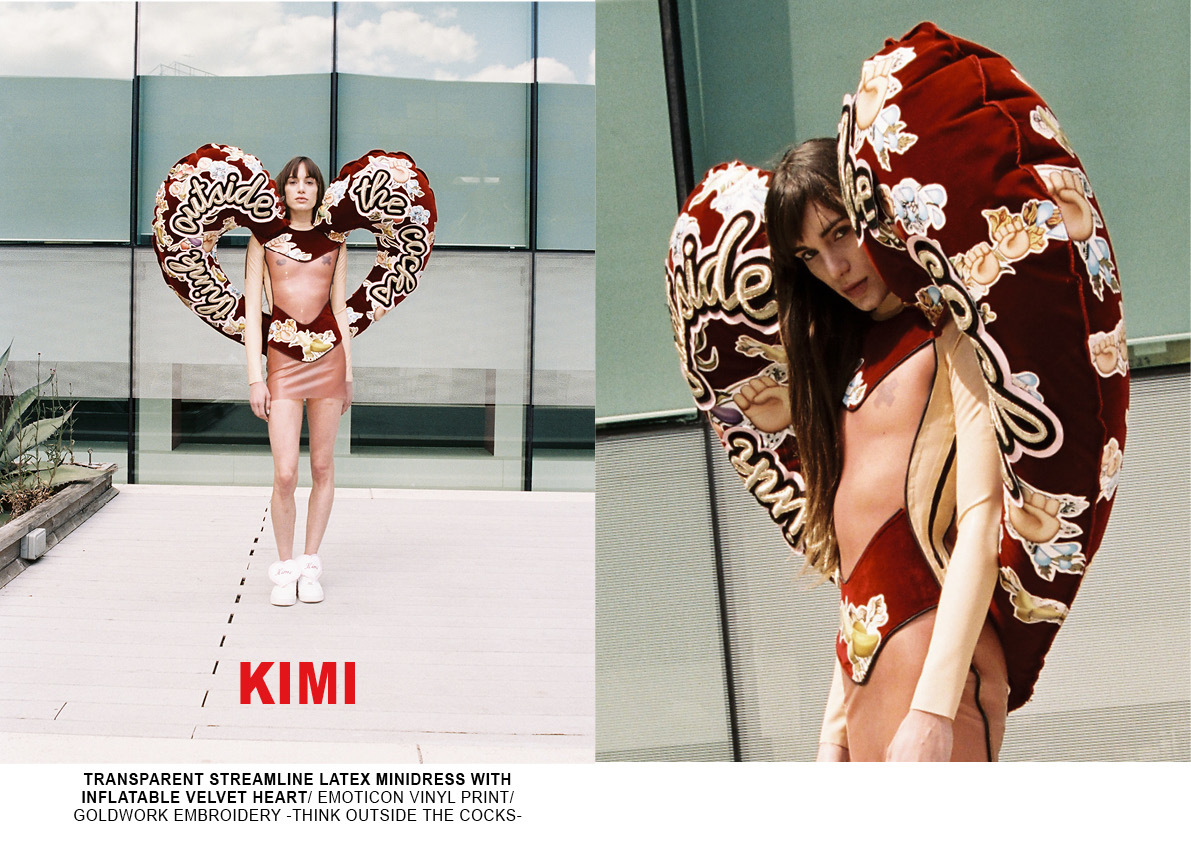Graduating from the Royal College of Art earlier this year with a witty collection comprised of blow-up hearts, anacondas and crowns, phallic chainmail and My Little Pony frills, Nan Li and Emilia Pfohl aka Namilia were the ones that stuck in everyone’s minds, and the first picture to pop up when searching for the show reviews. The zine they’ve made explaining their collection is a sugar-coated collage of stickers, emojis, hashtags and your fair share of celebrity activists, that deconstructs female stereotypes and buries their negative connotations. With Miley setting up her Happy Hippies Foundation, Ariana shutting down anyone who refers to her as “Big Sean’s ex” and Nicki Minaj/Kim Kardashian/Rihanna/Beyoncé redefining stick thin body stereotypes, there are plenty of celebs to choose from if you’re looking for a modern feminist idol. These are the women Nan and Emilia looked towards for their final collection.
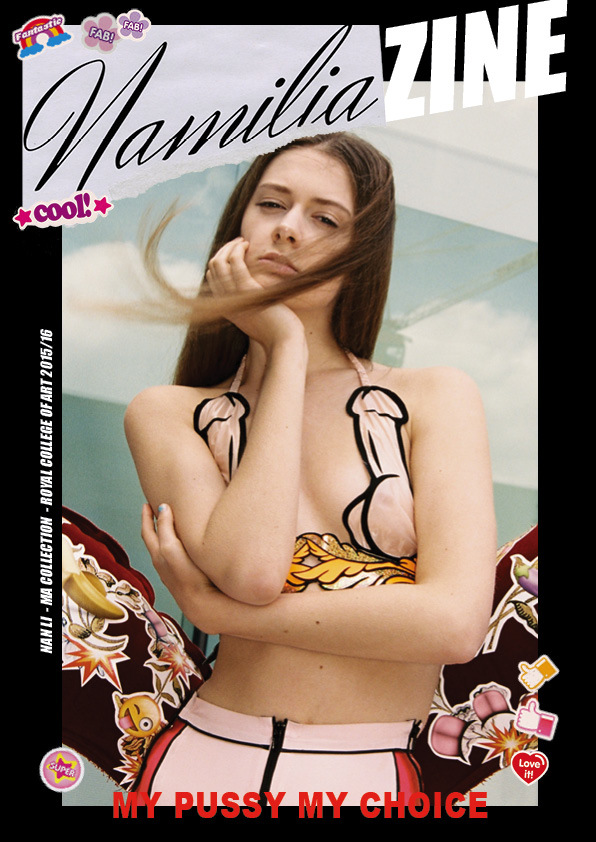
What do you stand for?
The Namilia girl questions and rebels against common rules and perceptions of femininity. For us clothing is not just an aesthetic tool but a visual platform to proclaim our beliefs, conflicts and dreams. We always try to project that revolutionary spirit of youth cultures into each garment we design and to constantly redefine, empower and celebrate a new form of fun and youthful femininity.
How has Miley Cyrus inspired you?
When we started to research in December last year Miley was still in the news because of her provocative stage shows of the Bangerz Tour, long before people realised she was becoming the leader of a new generation of celebrity activists with the Happy Hippie Foundation etc. We think it’s great that she has started to use her fame and visibility to proclaim her beliefs and to speak up instead of just producing pop music and selling records. Using your sexuality in such an exaggerated way that it becomes something almost threatening and therefore empowering, it’s almost like a weapon.
Celebrity and youth culture is changing in a way that has finally become cool again. We grew up in a time where it was really uncool to identify yourself with a group or movement and it was all about pretending to be as “individual” as possible and finally this is changing. People are finding new ways to demonstrate it. Instead of going onto the streets, you can speak up via Instagram, where selfies and posts become digital flags and banners.
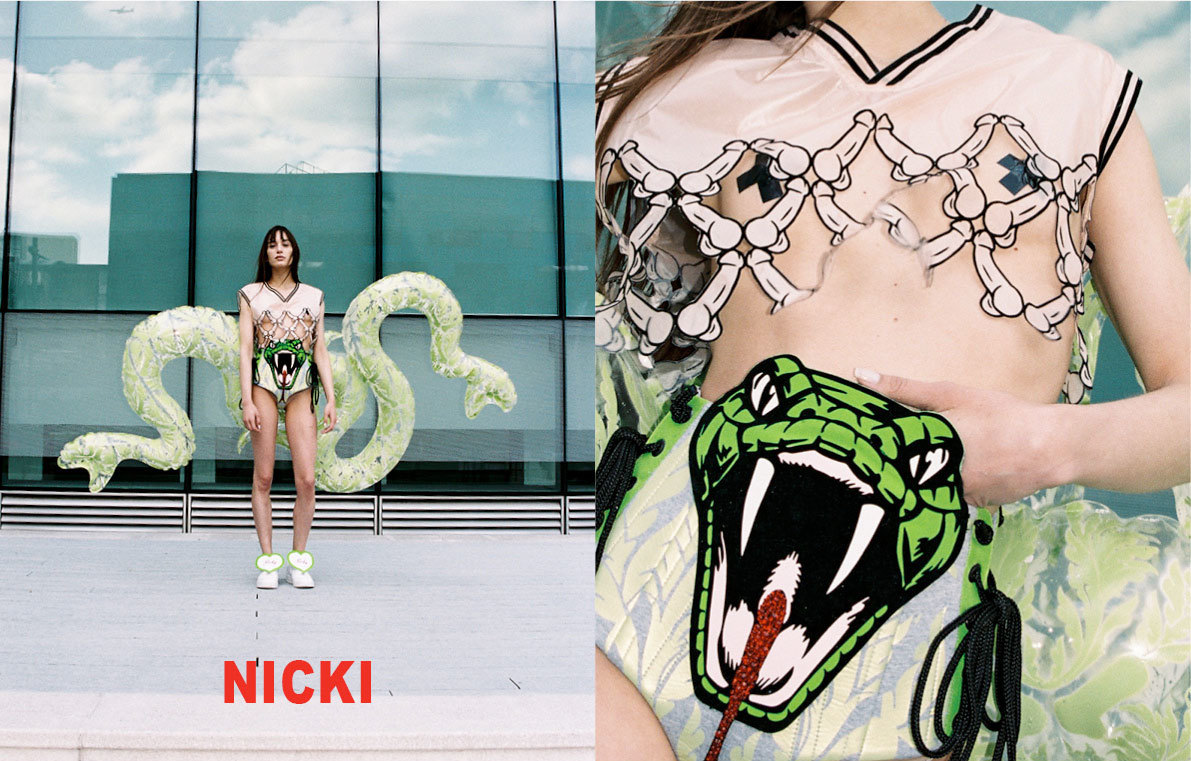
Do you think provocation is the best way to get your message across?
Provocation comes from the Latin word “provocatio” which means, “to challenge”. We think that’s a natural urge and responsibility of every creative or in general young person to question existing rules and expectations in order to evolve and to shape the future you will live in. Our head of fashion Zowie Broach said to us once that we have to be like the avant-garde; originated from the French military language referring to the vanguard, i.e. the troops which advance first on the battlefield and thus first have contact with the enemy. That was a really inspirational and motivating statement to us and that’s what we try to do in our work as designers as well.
Can a woman be naked without being sexualised?
Of course, being sexualised automatically implies that someone else sexualises you. Which we think is deeply rooted in our culture — that when a woman presents herself in a sexual, beautiful or desirable way (make-up, underwear, exercise) she is automatically doing it for a male person, to get recognition or approval and therefore it’s instantly a sign of weakness. We believe that there are enough women and girls out there who are using and turning an overly sexual self-presentation and female objectification into a discussion about empowerment and a new form of feminism. Just check out the previous i-D interview and Instagram accounts with Nadia Lee and Millicent Hailes, who we have collaborated with.
How are women viewed in the media?
We think that in mass pop culture/media women definitely tend to be categorised into different clichés to make them look more “figured out”. There is always the sexy one, the smart one, the sporty one, the outsider etc, be it in television, movies or the music industry.
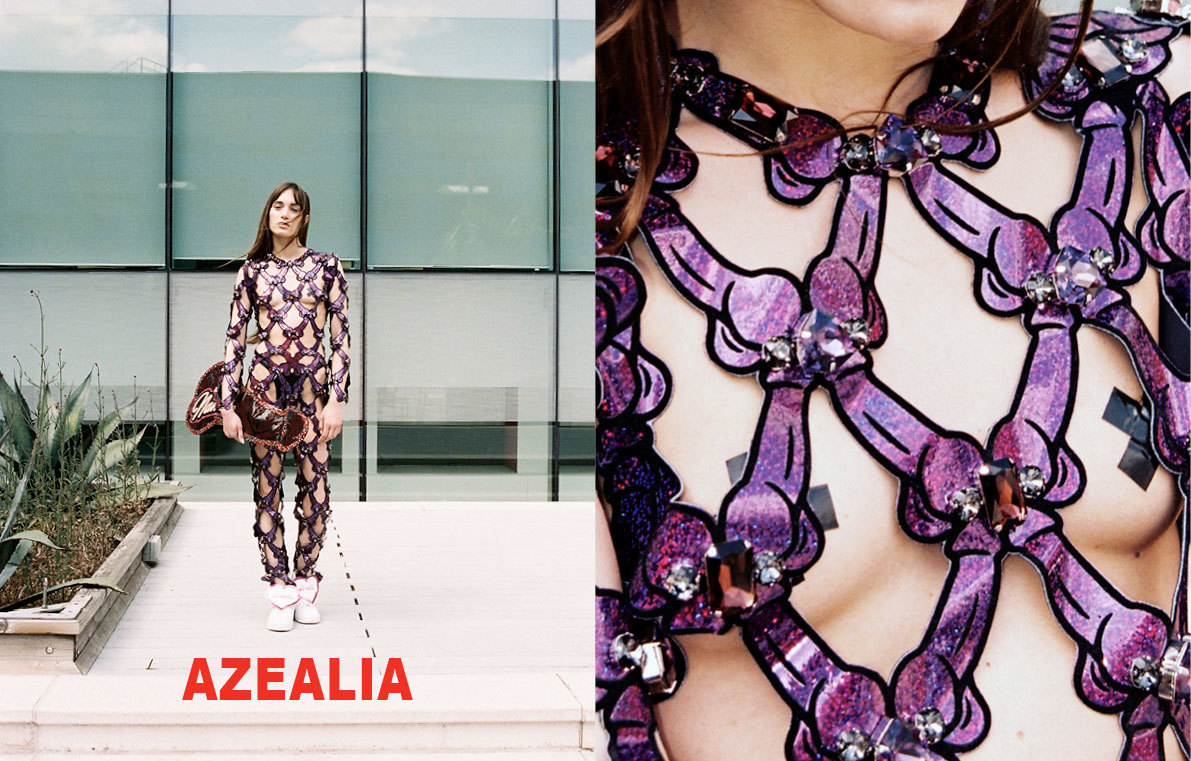
How should that change?
By “thinking outside the cocks” and by showing that there are true, intelligent and authentic personalities behind the roles they play for media purposes.
How has social media helped us change our perception of women?
It represents a new form of direct or pure democracy. People are voting (liking) directly for their idols and leaders and even if you don’t agree with the values represented by someone like Kim Kardashian you have to acknowledge the fact that those 35 million followers and 500000 likes she gets in an hour are a real reaction coming from the people and not something which has been dictated from above.
How has all this translated into the clothes you design?
We have treated each “spot” on our girl band individually and each outfit is a subjective and ironic visualisation of one celebrity character. The collection consists of nine outfits that have names like ‘daddy’s girl Lana’, ‘slutty Kimi’, ‘sporty Riri’, ‘sweet Ariana’, ‘crazy Miley’, ‘goddess Queen B’ or ‘Nicki anaconda’.
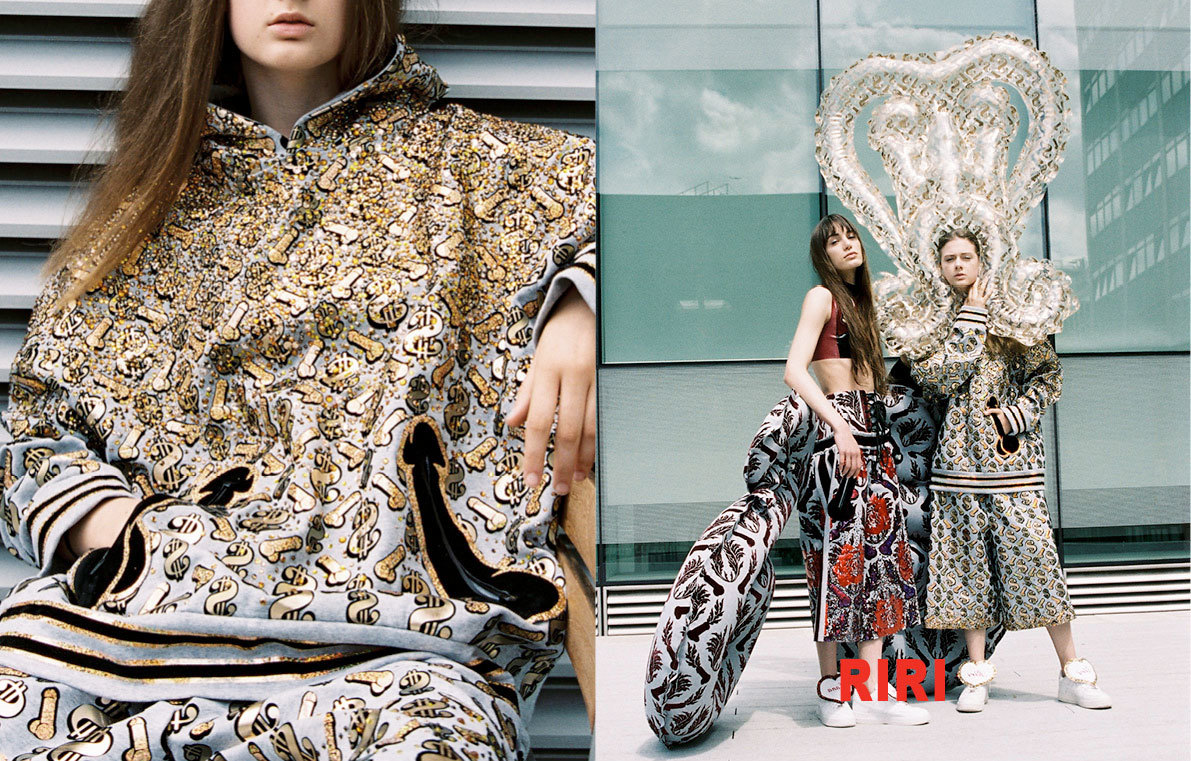
What message do you want to portray with the phallic shapes?
In the context of art history the phallus has been always the untouchable symbol of male fertility, power and ultimate masculinity. For us it’s a radical move of rebellion to use this universal symbol of male domination in a ridiculing and ironic way throughout the collection, to play down its value of power and masculinity in an ironic, youthful and provocative way. It’s like playing the penis game, the more often and louder you say it, the more harmless it becomes. By using the phallus shape stylistically as decoration, trims, patterns, chain mail and lace appliqués, it becomes something comic and cute and completely harmless and fun.
Are there any other issues you’d like to address in your work in the future?
As neither of us grew up in a time of youth culture, I think our driving force will always be to explore ideas of identity, youth, tribes and a feeling of belonging and community.
Credits
Text Felicity Kinsella
Photography Theresa Marx
Models Nadja Allegra at Viva. Erin at M&P.
